Science
Science provides an empirical way of answering interesting and important questions about the biological, physical and technological world. The knowledge it produces has proved to be a reliable basis for action in our personal, social and economic lives. Science is a dynamic, collaborative and creative human endeavour arising from our desire to make sense of our world through exploring the unknown, investigating universal mysteries, making predictions and solving problems. Science aims to understand a large number of observations in terms of a much smaller number of broad principles. Science knowledge is contestable and is revised, refined and extended as new evidence arises.
The Australian Curriculum: Science provides opportunities for students to develop an understanding of important science concepts and processes, the practices used to develop scientific knowledge, of science’s contribution to our culture and society, and its applications in our lives. The curriculum supports students to develop the scientific knowledge, understandings and skills to make informed decisions about local, national and global issues and to participate, if they so wish, in science-related careers.
In addition to its practical applications, learning science is a valuable pursuit in its own right. Students can experience the joy of scientific discovery and nurture their natural curiosity about the world around them. In doing this, they develop critical and creative thinking skills and challenge themselves to identify questions and draw evidence-based conclusions using scientific methods. The wider benefits of this ‘scientific literacy’ are well established, including giving students the capability to investigate the natural world and changes made to it through human activity.
The ability to think and act in scientific ways helps build the broader suite of capabilities in students as confident, self-motivated and active members of our society.
- Plus Plan
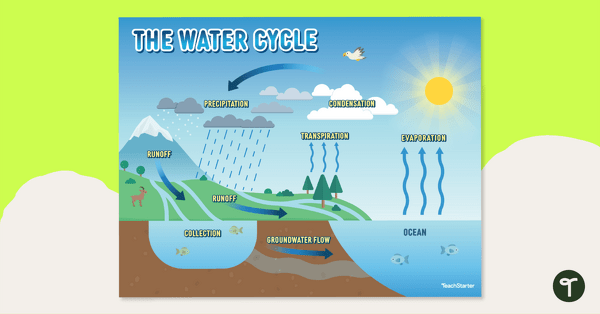
Water Cycle Diagram
Display this water cycle diagram when teaching about the continuous movement of water above and on the surface of the Earth.
- Plus Plan
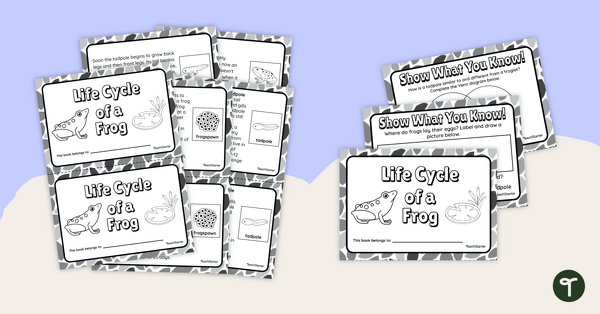
Life Cycle of a Frog – Mini-Book
Read and learn about the life cycle of a frog with this informational reader and activity booklet.
- Free Plan
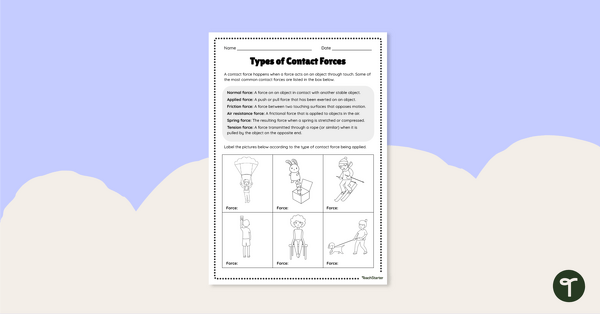
Types of Forces Worksheet
Teach your Year 4 students about the types of contact forces with this simple one-page worksheet.
- Plus Plan
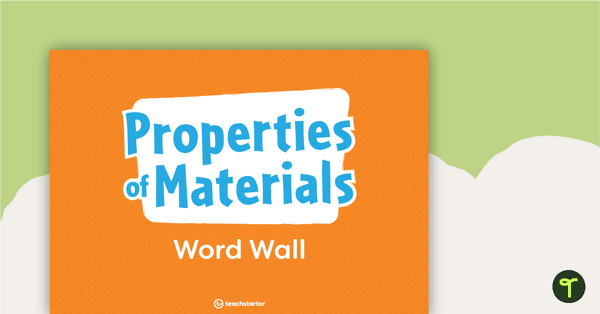
Properties of Materials Word Wall Vocabulary
Forty-eight 'properties of materials' vocabulary cards.
- Plus Plan
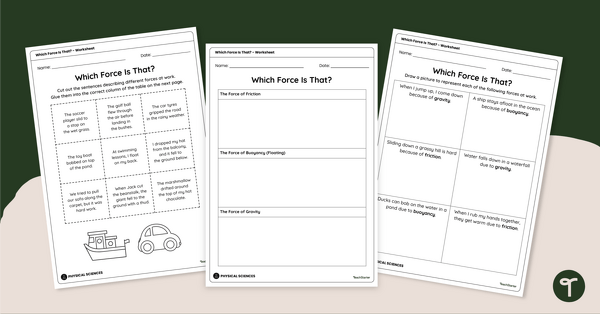
Which Force Is That? Worksheet
Use this forces worksheet to teach your Year 4 students about the common forces of friction, buoyancy and gravity.
- Plus Plan
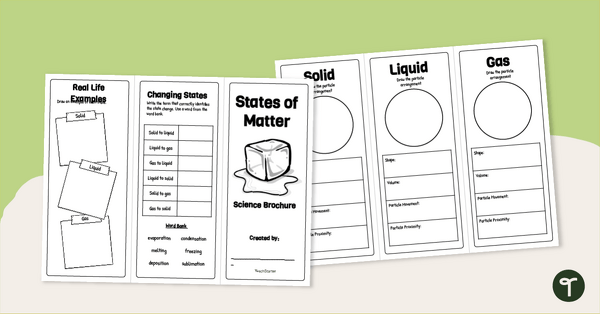
Forms of Matter Brochure Template
Introduce your students to the three states of matter with a printable Forms of Matter Foldable Brochure Template.
- Plus Plan
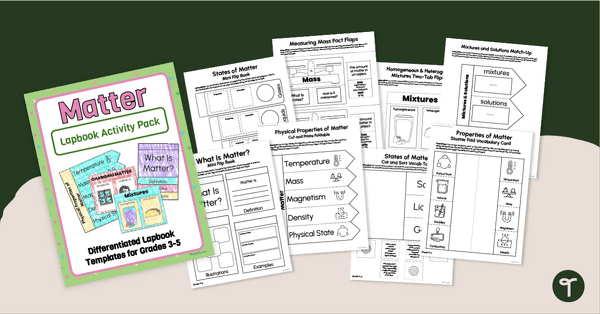
Matter Lapbook - Foldables for Science
Use our printable Matter Lapbook Foldables to teach your students about the states of matter, characteristics of matter, and changes in matter.
- Plus Plan
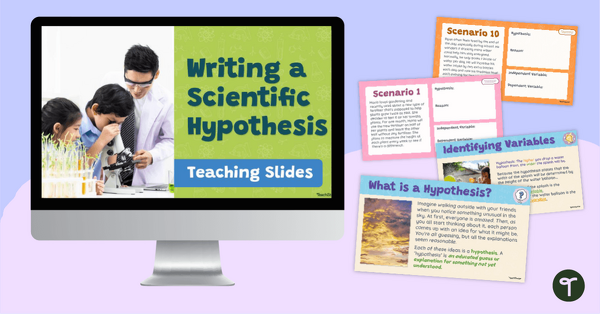
Writing a Scientific Hypothesis PowerPoint
Teach your students how to write a scientific hypothesis with an interactive slide deck and hypothesis writing practice activity.
- Plus Plan
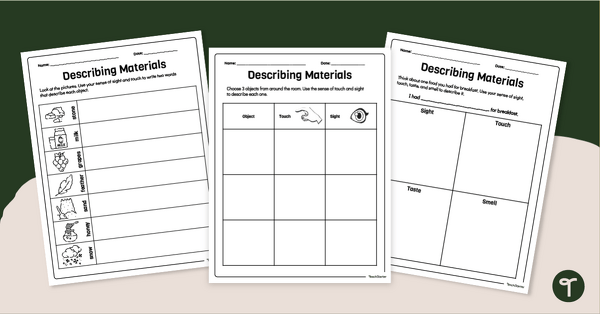
Describing Matter Properties Worksheet Pack
Observe and describe examples of matter with a Matter Properties Worksheet Pack.
- Plus Plan
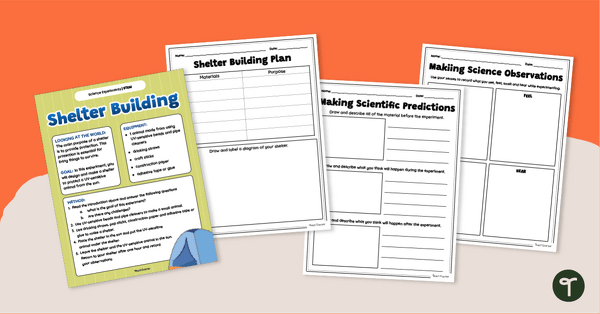
Shelter Building - STEM Experiment
Discover how shelters protect living things by challenging your students to build an animal shelter in this Shelter Building Stem Activity.
- Plus Plan
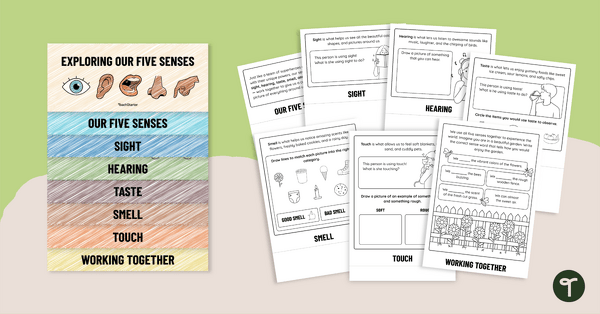
Five Senses Activity Flipbook
Explore the five senses with your students using this engaging five senses activity flipbook.
- Plus Plan
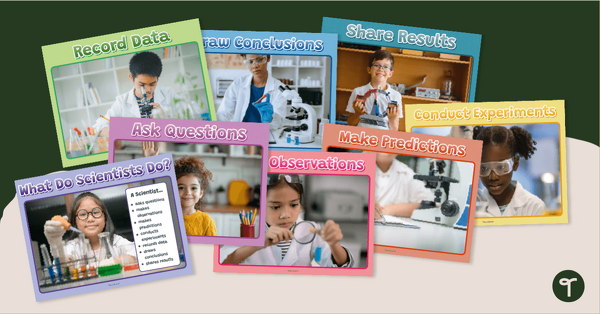
Scientific Method Chart Pack (F-1)
Teach the scientific method with a printable ‘What Do Scientists Do?’ Scientific Method Chart Pack for Early Years.
- Plus Plan
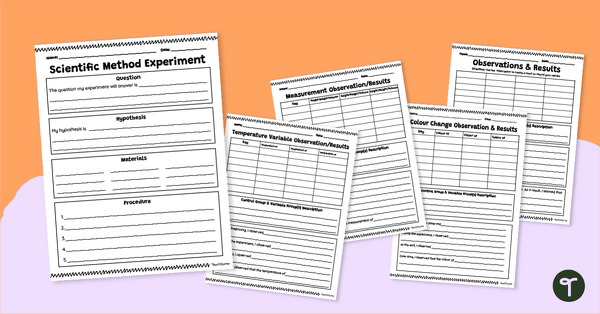
Science Investigation Worksheets - Experiment Data Collection Templates
Record scientific observations and results with a variety of ready-made science investigation worksheets.
- Plus Plan
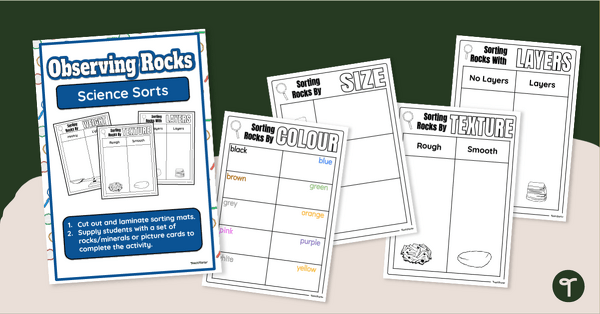
Sorting Rocks By Properties - Science Sorting Mats
Make sorting rocks by properties hands-on and engaging with our Printable Rock Properties Sorting Mats for Kindergarten through Year 3.
- Plus Plan
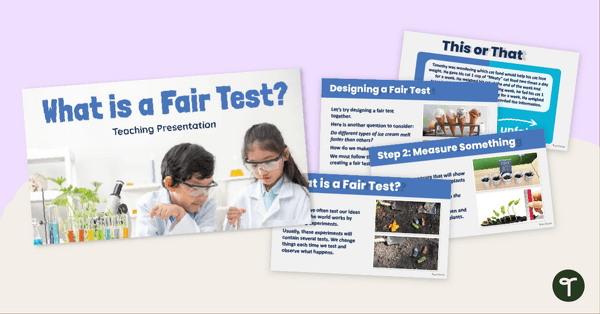
What is a Fair Test? PowerPoint - Year 3 and Year 4
Teach your Year 3 and 4 students about fair tests with an engaging 'What is a Fair Test? Teaching Slide Presentation.
- Plus Plan
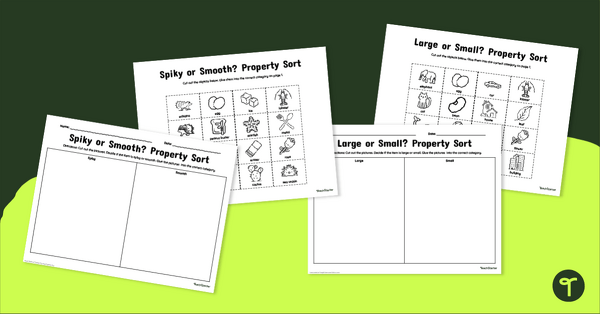
Observable Properties of Matter Cut and Paste Worksheets
Practise sorting objects based on observable properties with a pair of printable cut and paste worksheets.
- Plus Plan
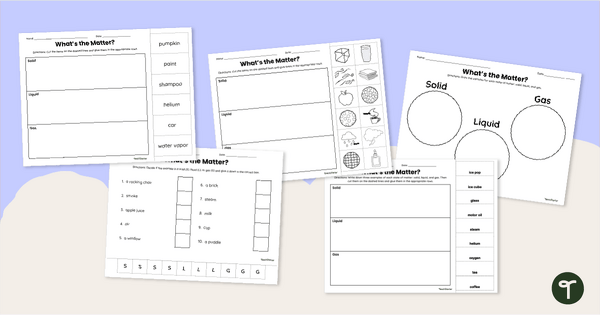
What's the Matter? Worksheets
Help your students differentiate between states of matter (solid, liquid, and gas) with a set of printable ‘What’s the Matter?’ Cut and Paste worksheets.
- Plus Plan
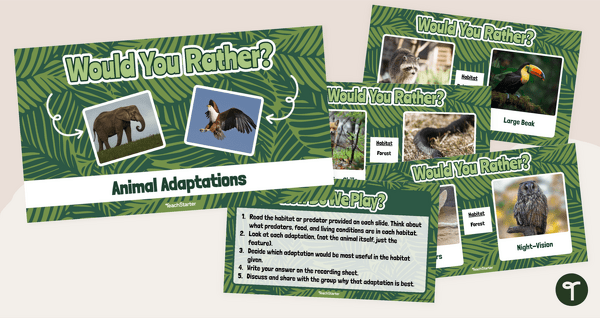
Would You Rather? Animal Adaptations Game
Discuss and debate the best animal adaptations with the Would You Rather? Animal Adaptation game.
- Plus Plan
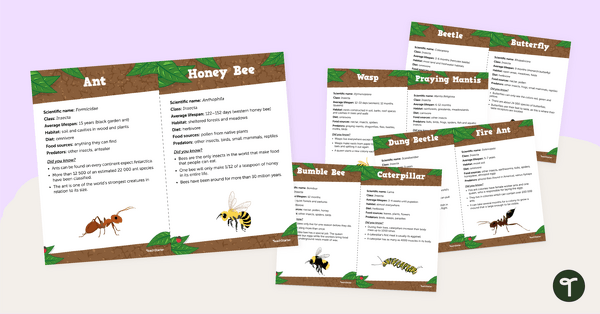
Types of Insects - Minibeast Fact Cards
Discover facts and features of a variety of insects with a handy set of insect fact cards.
- Plus Plan
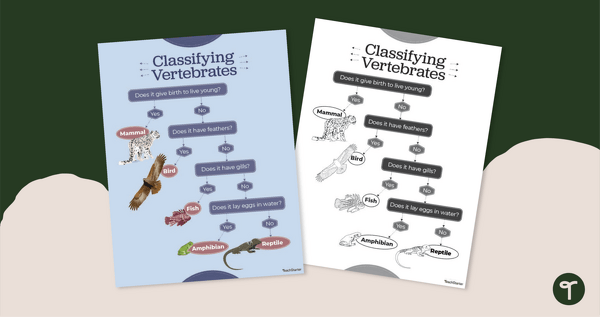
Classifying Vertebrates Flow Chart Poster
Classify vertebrates using an animal classification flowchart poster.
- Plus Plan
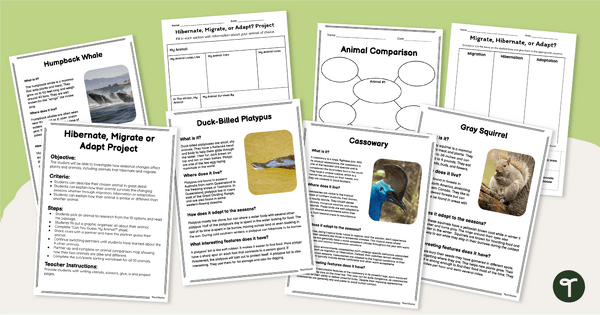
Adapting, Migrating, & Hibernating Animals Research Project
Research and report on animals that hibernate, migrate, and adapt with an animal adaptations project.
- Plus Plan
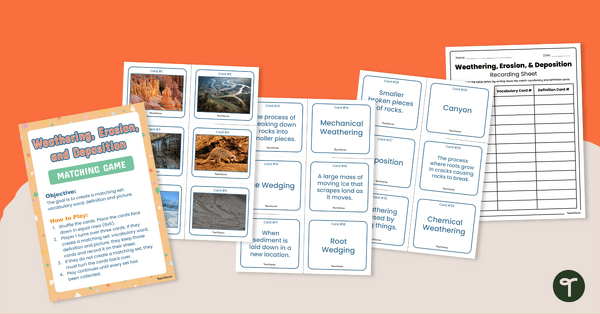
Weathering, Erosion and Deposition Matching Game
Challenge your students to identify different slow changes to Earth’s surface with this matching game designed for year 4 and 5 students.
- Plus Plan
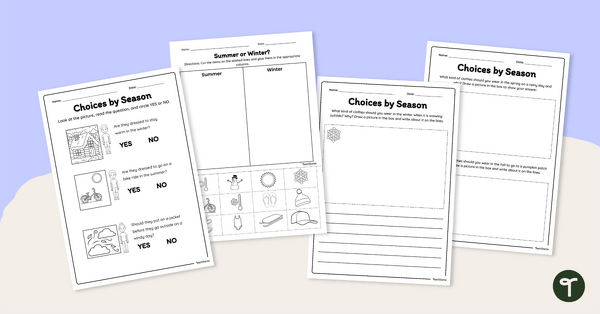
Seasons, Weather and Our Choices Worksheets
Hand out these eight great seasons worksheets to help your students learn all about the seasonal changes and the way they affect our everyday choices.
- Plus Plan
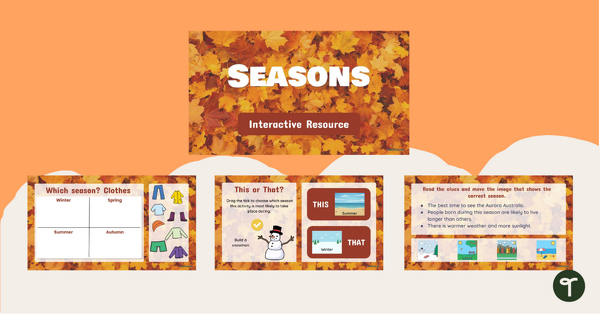
Characteristics of Seasons Interactive Activity
Use this activity-packed interactive resource to explore with your students the names and characteristics of summer, autumn, winter and spring!
- Plus Plan
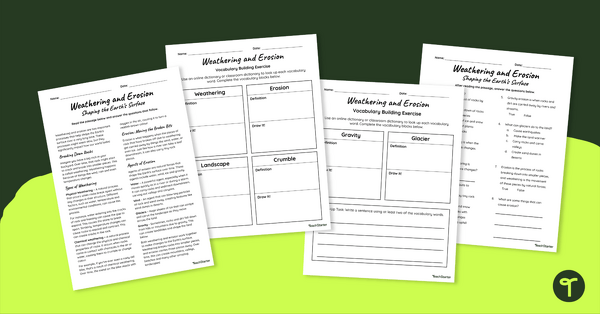
Weathering vs. Erosion Worksheet Pack
Support student understanding of weathering and erosion with this reading comprehension passage, worksheet and accompanying vocabulary activities.
- Plus Plan
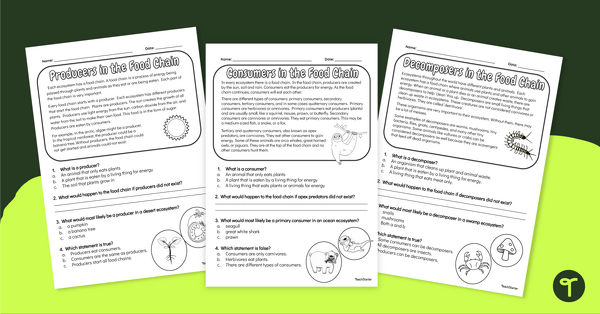
Producer, Consumer, Decomposer - Comprehension Worksheets
Explore the role of producers, consumers and decomposers within ecosystems with this comprehension task.
- Plus Plan
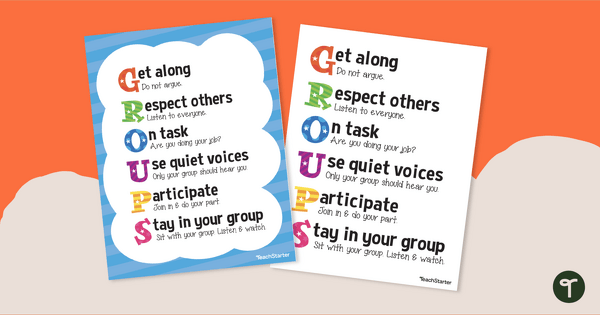
G.R.O.U.P.S - Group Work Expectations Poster
Encourage cooperative behaviour during group work activities with a printable group work mnemonic poster.
- Plus Plan
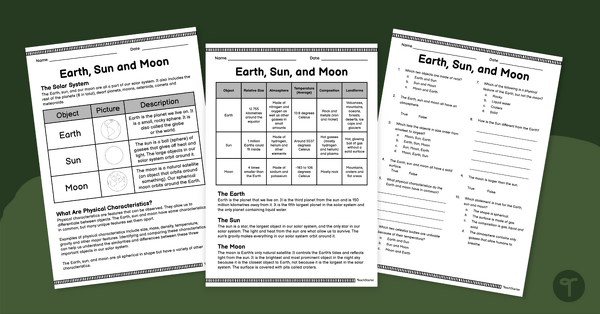
Earth, Sun and Moon – Comprehension Worksheet
Read about and compare physical characteristics of the Eath, sun and moon with this reading comprehension sheet.
- Free Plan
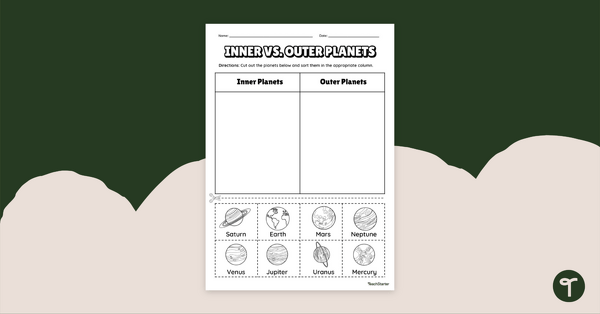
Inner vs. Outer Planets – Cut and Paste Worksheet
Sort inner and outer solar system planets with this cut-and-paste science worksheet.
- Plus Plan
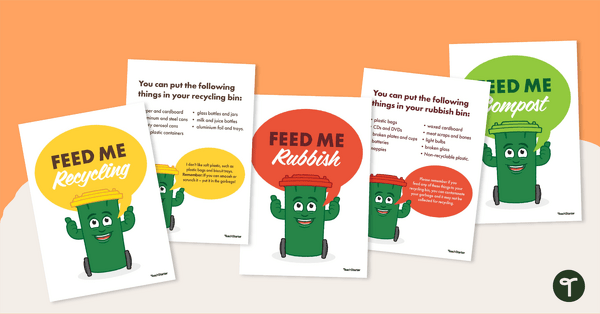
Garbage Bin Posters - Rubbish, Recycling and Compost
Posters outlining what can be put in the different types of bins.
- Plus Plan
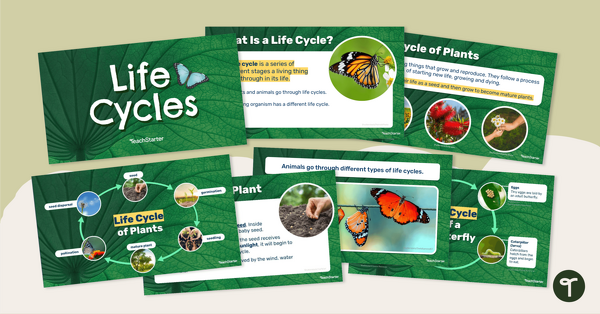
Life Cycles – Teaching Presentation
Teach your students about life cycles of plants and animals with this 19-slide teaching presentation.
- Plus Plan
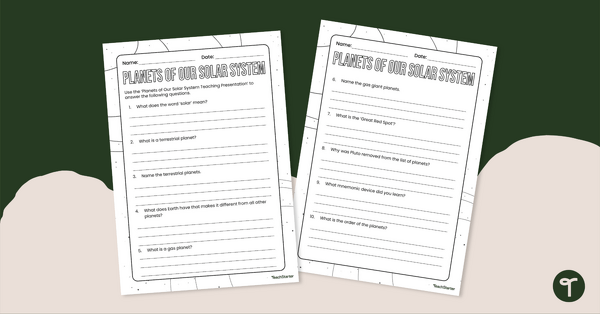
Planets of Our Solar System – Worksheet
Use this worksheet to review planet order, features and classifications.